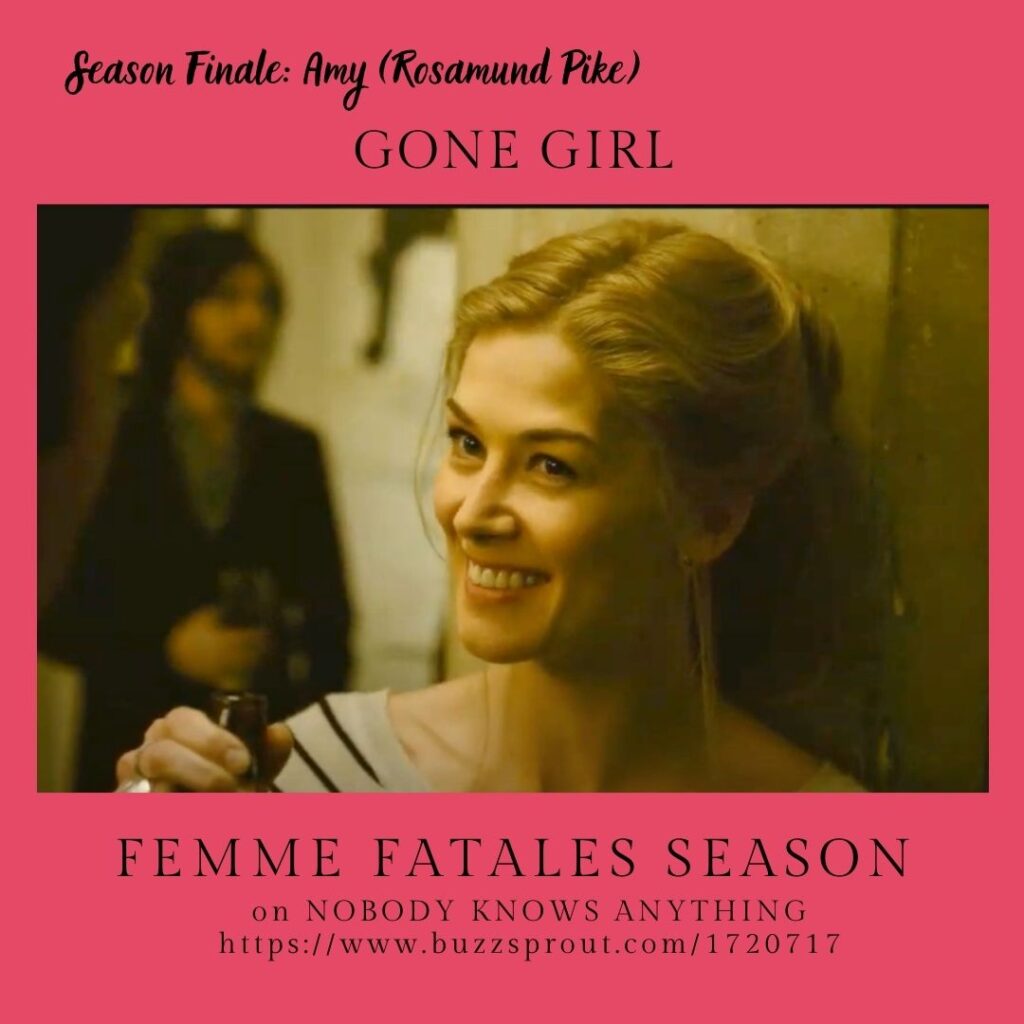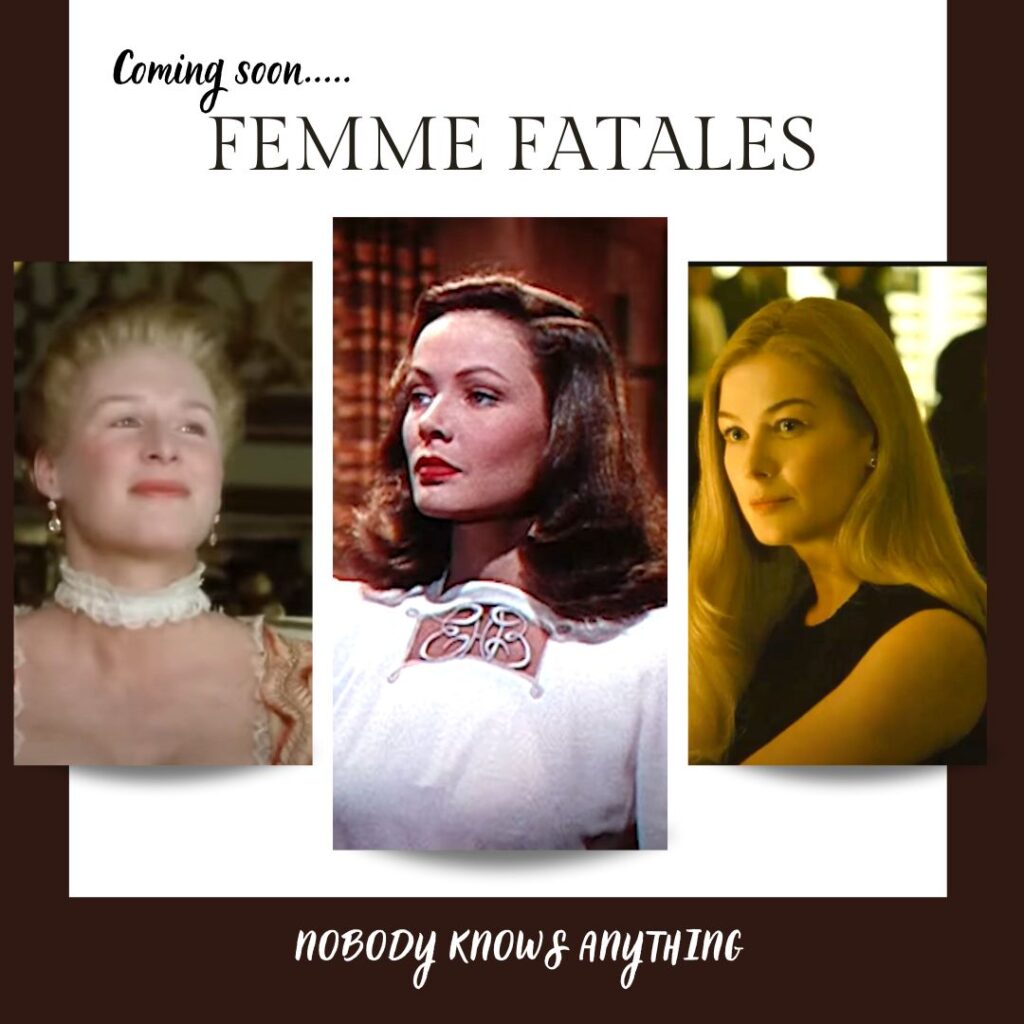Uncategorized
Oscar Rant, Part 3: Flower Moon’s Many Missteps
Spoilers–but not as many as Scorsese’s
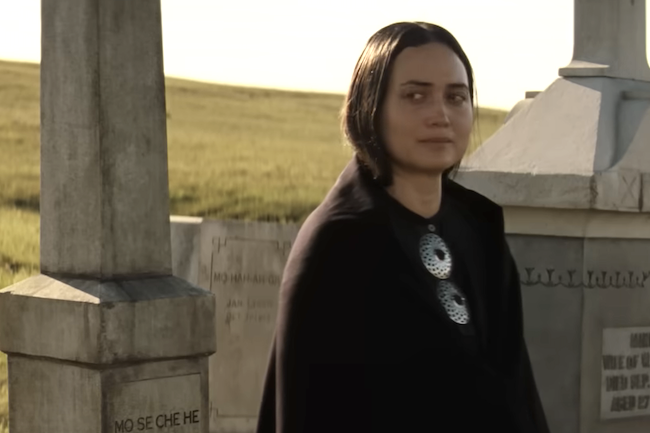
I knew I would struggle to warm to Martin Scorsese’s interpretation of a well-loved book. Killers of the Flower Moon is a heartbreaking, fascinating page turner. And it is a history book. I stayed up till 4 am to finish it. What I didn’t expect to do in watching Scorsese’s film of the same name was flinch. In trying to stay authentic and true to the Osage people, Scorsese walked into one of the oldest stereotypes. And the Academy is about to give his starring actress an Oscar for it.
The dignified, long-suffering man or woman of color is one of those stereotypes Hollywood has struggled to shake. There’s also a smug, self-satisfied attempt to award such films and performances with honors (Green Book, Driving Miss Daisy, The Help). When it comes to a group of people our country systematically oppressed, robbed, and killed–like the Osage and so many other American Indian tribes–granting the characters dignity can feel like a kind of reparation, minor as it may be. But it’s also dehumanizing to reduce a person to such a narrow set of traits.
I understand that Scorsese’s task was not easy. The American historical record is simply more complete when it comes to white men than for anyone else. Author/historian David Grann likely made FBI agent Thomas Bruce White Sr. his central character in part because he had so much information on him. Grann even includes a fascinating later history of his mercy toward prisoners who injured him in a prison break, which helps us understand the kind of man who would risk his life for others. And White was, indeed, a hero, and a fascinating one at that.
I get Scorsese’s attempt to avoid the white savior story he risked writing if White were his lead. But he had a dilemma: What do we know about Mollie Burkhart (Lily Gladstone)? We know she was rich. We know she lost many relatives to murder. That she believed in her husband, Ernest Burkhart (Leonard DiCaprio), far longer than she should have. We know that she was very sick. That’s not enough detail, if she’s your central figure. It was up to Scorsese to breathe life and complexity into her characterization, to make her wholly human in the way our 1920s racist, sexist historical record would not grant her–or lean on the descendants or family members who could tell him more.
Alas, Scorsese’s never been very good at female characters. This is no exception. Besides brief glimpses of a more complex woman during the courtship, he has her either sitting or in a sickbed looking resigned, sad, and stoic for 90% of the film. We don’t even feel the menace or experience her fear as she’s poisoned, as we would for a Alfred Hitchcock heroine, because we have little sense of her inner life.
We don’t get to see a sense of humor or any unique, humanizing quirks–we only know that she suffered. And with Eric Roth as his cowriter, whose credits include Forrest Gump (another film with underdeveloped female characters), what hope did he have of getting it right? Why, oh why, can’t this brilliant man recognize his limitations? There’s nothing wrong with specializing in dark white men as a genre. But this was not the subject matter for that focus. Why not let someone else write the screenplay? An Osage female writer would have been amazing; at the least, Scorsese could have chosen a woman.
Mollie’s is not the only half-baked characterization of the Osage in the film. The subtitles only occasionally translate the Osage language, which is used extensively. Instead, the subtitles spell out something like “speaking in Osage,” which was 1. evident 2. useless 3. distancing. Why not help us know the characters better by having them speak in English if you’re not going to bother to translate? (I kept hoping this was an issue with my streaming service, but I doubt it.) The occasional group scenes with Osage leaders stating the obvious didn’t help.
There was a fascinating real-life federal agent, John Wren (Tatanka Means), the only Native American who’d worked for the bureau by then. He assisted with the investigation and appears briefly in the film, and I kept thinking that Scorsese should have focused the narrative on him. What a fascinating angle that would have been! He was still an outsider to the Osage, but had more of an insider’s angle than the rest of the agents.
Instead, Scorsese doubles down on Leonardo DiCaprio’s Ernest, even minimizing the degree of his crimes by not covering his whole plan (or at least, tacit acceptance of the plan) to include his son and wife in the blow-up-the-house plot. Did he love Mollie? He seemed to in the book–and in how he handled the trial. But many dangerously abusive men have loved the women they attempt to murder. I’m not really interested in getting inside of their heads. Are you?
Also, where’s the excitement? We believe Ernest is pretty innocent for a long while in the book. We don’t know his uncle is a monster. The reveal is breathtaking in the book. Leaving out the suspense is a baffling choice.
It’s a shame to see all the wasted potential here: Robert De Niro is good in it and DiCaprio great (even if they are miscast; De Niro is no cowboy and both are at least two decades too old for their parts). Gladstone is very good with what she had to work with, and captures what we know of Mollie well. I enjoyed her subtlety.
There are so many beautifully shot scenes. That moment right before the bomb was especially powerful, as was the federal agents’ gathering scene. Scorsese shares the history and legal status of the Osage’s rights (or rather, lack of rights) without bogging down the narrative–not an easy thing to do. I thought the best part of the film was the start of the investigation by the private eyes: Whenever Scorsese feels comfortable, he does such great work. I loved how the movie helped me keep the characters straight, something I struggled with in an overpopulated book.
A lesser-known director might not have gotten this important story made into a film; I wanted so much to like it. Scorsese’s earnest attempt in that ending to finally give Mollie her due made me sad; I don’t think he succeeded. But maybe he’ll draw people back to the book, which does. I guess I’ll have to take some satisfaction in that.
The Charming Shop Around the Corner
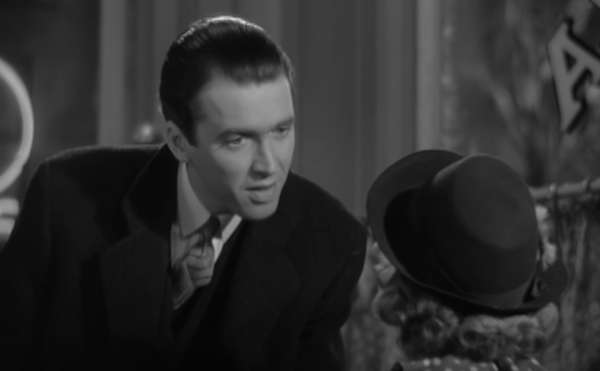
Last month, I wrote about Jimmy Stewart playing a monster in Vertigo. It seems only fair that I cover one of his gentlest roles next, that of lovelorn salesman Alfred Kralik in holiday favorite The Shop Around the Corner (1940). For those unfamiliar with the film, it was later remade as the horrible You’ve Got Mail (1998), which I despised only slightly less than the man behind me in the theater, who complained, “You’ve got to be kidding me” to his girlfriend after it ended.
The Shop Around the Corner is superior to its remake for many reasons. Since this is a Ernst Lubitsch film, there’s a sophisticated touch to the little dramedy throughout; the plot is nuanced, funny, heartwarming, and occasionally heartbreaking.
The hardworking salespeople of the little Hungarian gift store are likable and driven and funny and loyal to one another.
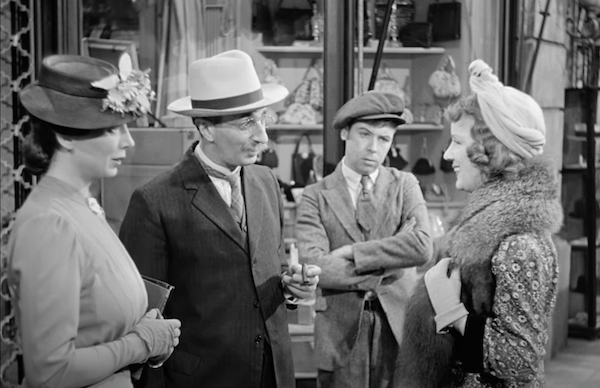
They’re also struggling to get by, as in the moment when Alfred asks his colleague Pirovitch (Felix Bressart) if he’s ever gotten a bonus and gets a wistful “…once…” in response. The film often reminds me of workplace comedies, especially Brooklyn 99 and The Office, because the little family of coworkers commit to their work and vie for status with their boss. Shop experiences take up far more time than the romance.
The irascible, sensitive owner, Hugo Matuschek (Frank Morgan), is entertaining.
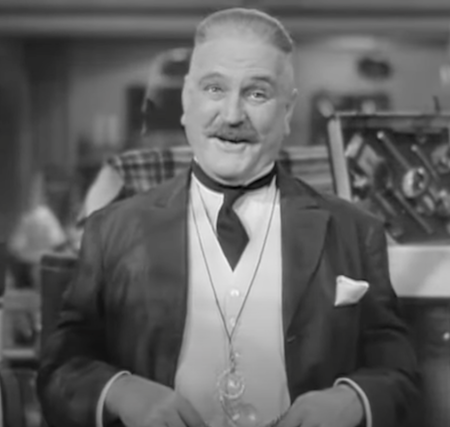
One of my favorite moments is watching Pirovitch dart out of sight when Hugo, trying to explain a specialty cigarette box, says to Felix’s colleagues, “All I want is your honest opinion.” We soon find out just how unwise it is to express your feelings to this particular boss.
Meanwhile, Alfred, the hero (Stewart), is writing love letters to an unknown respondent, who happens to be Klara (Margaret Sullavan), the prickly salesgirl the shop just hired.
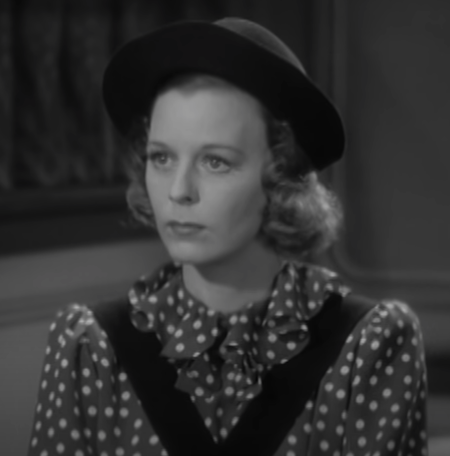
She, unaware he’s her pen pal, treats Alfred with disdain. Her attitude is partially the result of misunderstandings, but also because she’s a snob who sneers at him for his job. Even though she can be conniving and even cruel, there’s something so sad about the little airs she puts on, and about how fragile her thin veneer of confidence is.
And what a savvy salesgirl! She actually convinces a customer the cigarette box the owner loves, with its terrible music, is actually a candy box that is intentionally annoying so that it prevents overindulgence. Brilliant. I can’t help but root for her even if I think Alfred is too good for her. And their dialogue is so funny, clever, and entertaining.
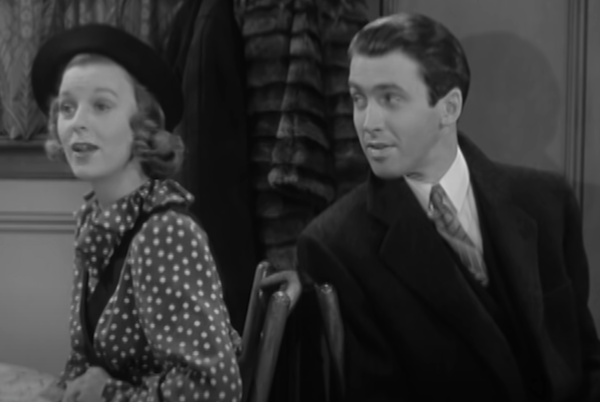
What a doll Alfred is. He’s so tender toward Klara once he knows who she is and is sympathetic toward the owner, who wrongs him. He bears with both of their treatment with a warmth and understanding that reveal he’s made of much finer stuff than either of them. He’s also so modest despite being the most admired worker in the shop. I love the moment he fears his pen pal will be beautiful. “Well not too beautiful, no . . . what chance does a fellow like me..?….just a lovely average girl, that’s all I want.”
Comic relief Pepi Katona (William Tracy), the confident delivery boy, doesn’t appear much until the second half, but what a joy he is every time he shows up. I particularly enjoy him teasing a doctor and the new delivery boy. He and Pirovitch are both by turns funny and warm–an unusual combination for a comedy:
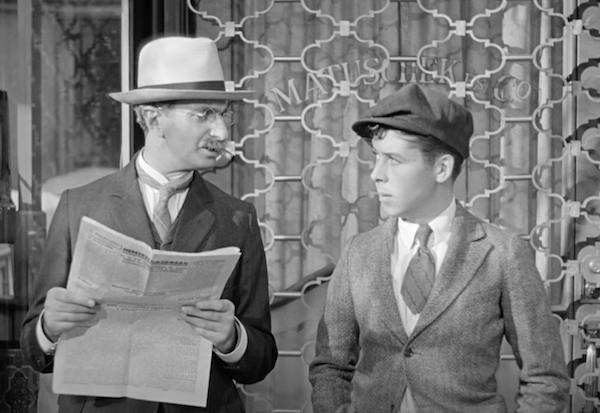
You’ve Got Mail, in contrast, dials up the time spent on the romance, eliminates any humor, makes the modest hero (Tom Hanks) a big box store magnate and forces the heroine (Meg Ryan) to be bop-her-head cutesy and snarky at the same time. I’d tell you more, but I’ve blocked the rest from my memory.
Do yourself a favor, and watch The Shop Around the Corner instead.
Casting The Thin Man Remake
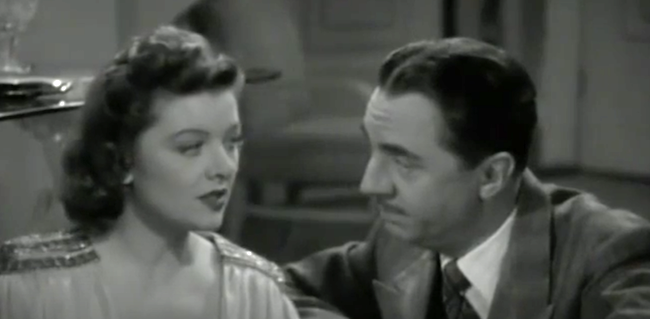
Brad Pitt and Margot Robbie are discussing a remake of The Thin Man, which has its longtime fans abuzz. While many ingredients are essential to an effective remake, the most important step is to take inspiration from the original pairing–cast the unexpected. After all, William Powell and Myrna Loy were dramatic actors. Manhattan Melodrama Director W.S. Van Dyke saw the two teasing each other on the set of his film and made a gamble: pair these two up in a rom-com/mystery, and see what happens.
What happened was comedy magic, the original film leading to FIVE sequels and the names Nick and Nora becoming shorthand for cool couple–even today. Who could be wittier, more stylish, more fun, more enviable than these two in action? No wonder Loy and Powell would ultimately be cast together in thirteen films.
So, of course, I’m thinking of what my casting would be. I wouldn’t object to Pitt and Robbie. Both have comedic talents, and even the age difference matches the source material (a book that is worth many rereads). But I want to spread my net a little wider. I love stories of actors playing unexpected parts: TV actress Mary Tyler Moore blowing us all away in Ordinary People, Malcolm in the Middle lead Bryan Cranston winning all the Emmys for the bleak Breaking Bad, the numerous dramatic actors chosen for comedy masterpiece Airplane!
Here are some possibilities I see. I’m borrowing people I love from TV and drama for this classic remake. I’m eager to hear your unexpected choices too….
William Jackson Harper & Awkwafina
Harper was a revelation as Chidi in The Good Place.
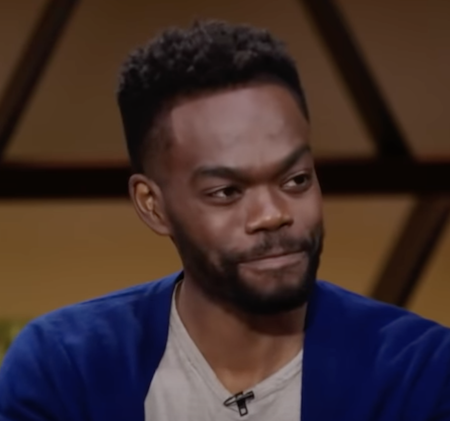
I could watch his peeps-in-the-chili scene all day. I found Crazy Rich Asians nearly as boring as The Kardashians, but Awkwafina? Wow. More Awkwafina for me, please. Can’t wait to watch the film with her and Sandra Oh, Quiz Lady.

Harper and Awkwafina both have a mixture of dry humor, unexpected timing, and perfect reaction shots in their repertoire. To see them play together would be a joy.
Jodie Comer & Aldis Hodge
Comer is a rising star for her dramas, an Emmy and Tony winner with a likely Oscar nod for The Bikeriders. But Killing Eve fans are eager to see her in a comedy given her stunningly funny facial expressions (and how long she holds them!) And wow, can that woman deliver a sarcastic line!

As for Hodge, he isn’t a big name yet since he rarely plays the starring role. Straight Outta Compton, Clemency, and One Night in Miami have demonstrated his dramatic skills, but we Leverage fans have seen this guy be FUNNY.
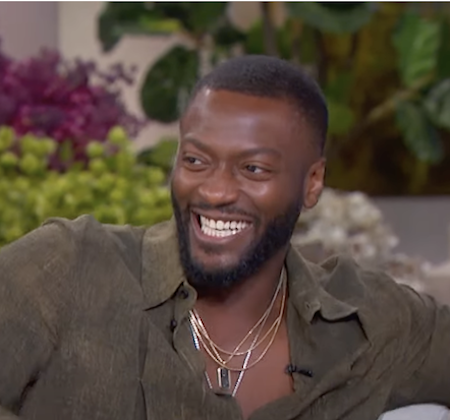
He’s good at dead pan AND high-energy freakouts (Nicholas Cage style). I think I’d give Comer the Nick role, and Hodge the Nora role. He’s especially funny when he grumbles under his breath, which would be a fine accompaniment to Comer’s detective antics. (We need Comer to have a super-showy part.)
Michael B. Jordan & Annie Murphy
I’ve been a Jordan fan since his indelible role as Wallace in The Wire. He has PRESENCE.
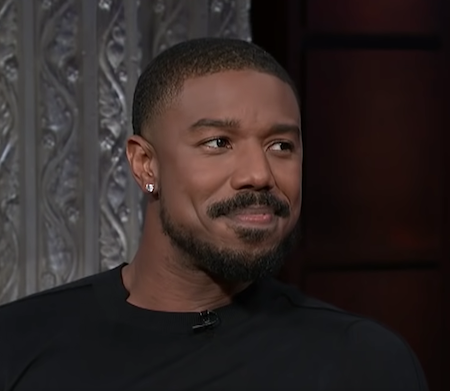
I can see him at ease in a comedic role like Nick’s, a part that calls for being suave as well as funny. Sure, he’s done little to prove his comedy chops yet, but the complexity of his performances convinces me that comic mastery is in his wheelhouse. And he can be quite funny in interviews.
Annie Murphy hasn’t yet found a role to equal her star-making turn in Schitt’s Creek.
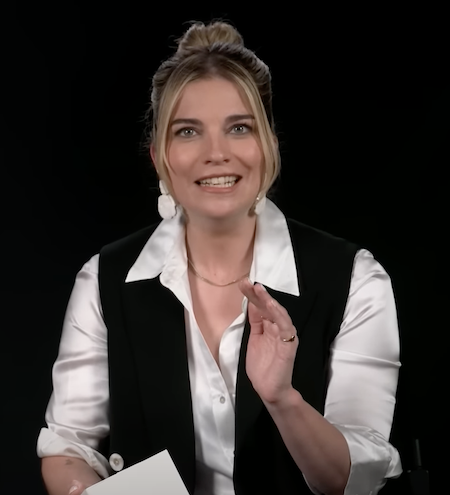
Her offbeat timing, slapstick gifts, and talent for improvisation (“A Little Bit Alexis” alone) would help her improve on the script. Given her generosity as an actress (she always highlights her partner’s skills), I think she’d help Jordan develop his comic potential.
Catherine O’Hara & Ted Danson
These humorous powerhouses are old for the parts, so it’s unlikely they’d win them. But can you imagine watching their combined talents in action? Danson would play a mean Nick, wouldn’t he? So debonair, and so funny.
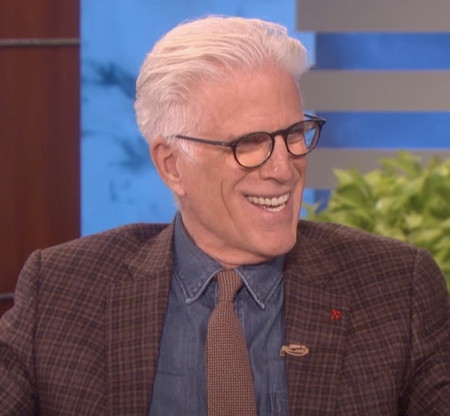
And O’Hara is so used to acting as a team–so good at playing off someone while holding her own.
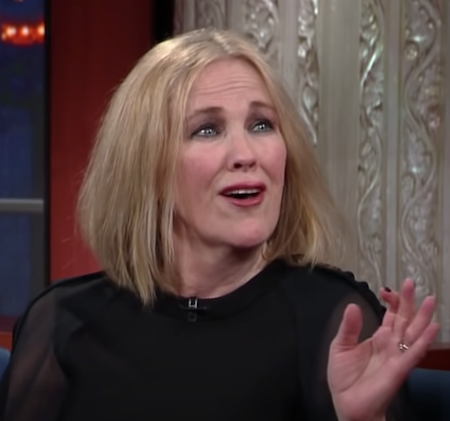
I can dream….
Kristen Bell & Adam Scott
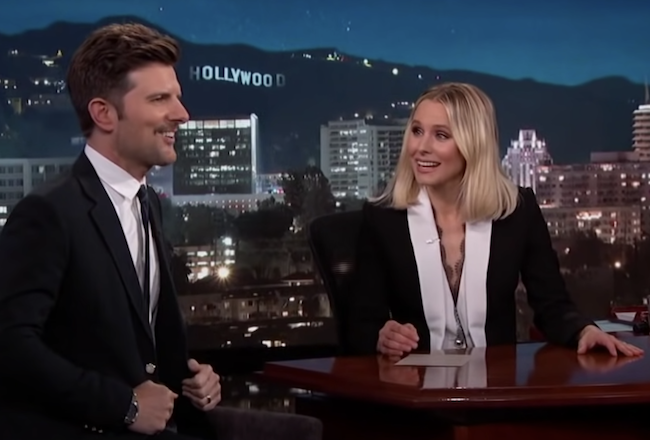
Kristen Bell has already proven her ability to play a witty sleuth in Veronica Mars, and Adam Scott has always been a great straight man. These two have impressive chemistry in Party Down and The Good Place. Let’s give them a movie that’s worthy of them. Watch their mutual self-deprecation when she interviews him on Jimmy Kimmel Live.
Tatiana Maslany & Stephanie Beatriz
Anyone who has seen Maslany in Orphan Black knows that she can do anything.
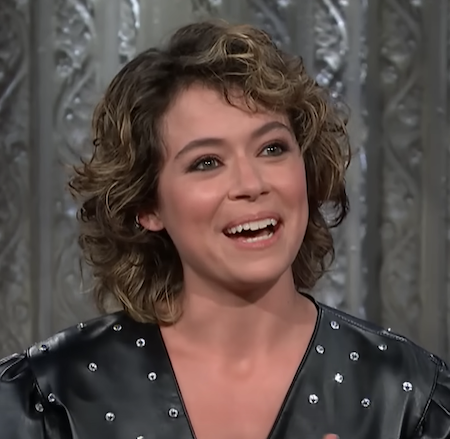
The woman played five major clones in Orphan Black—and you could tell when one was pretending to be the other. She has a sense for the physical ticks of each character, their intonations, their accents. (In total, her clones were in the double digits.) She’d be an ideal actress for a con artist or spy role, but it would be entertaining to see her in a traditional detective part.
Maslany sure could fool anyone she interrogated as Nick, and the mysteries were often a weakness of The Thin Man series. A more inventive plot could take advantage of her versatility. As far as her humor? Some of her clones displayed some effective dark comedy–and she clearly has the ability to do some slapstick.
I would pair her with Stephanie Beatriz playing a version of her Rosa Diaz role in Brooklyn 99–stone-faced and dry, a great foil to Maslany’s ethereal presence.
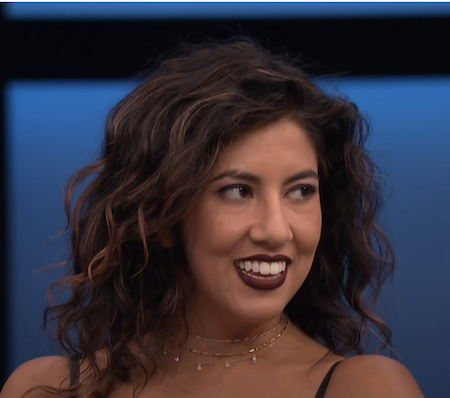
Beatriz’s tough-gal performance in her most famous role is especially admirable since she seems almost giddy in real life….
No one can shake the Powell-Loy pairing from its pedestal. Honestly, I wouldn’t want that. But if the remake is different enough, it’ll just feel like two very different takes on a brilliant novel, not a poor shadow of a classic film.
I’m eager to hear your dream pairings in the comments! If you’d like other posts on ideal casting, see my friend and podcast co-host Mike Gutierrez’s awesome guest post on Hitchcock remakes!
The 8 Movie Characters I’d Bring to See Barbie
If I could bring any film characters with me to the Barbie movie, this crew would come along. We would shout, complain, and advise (quite loudly), and so an empty theater–and an earlier viewing by me–would be critical. But just try to imagine with me, how perfect this party would be….(Mild spoilers ahead.)
1: Megan (Melissa McCarthy) from Bridesmaids (2011)
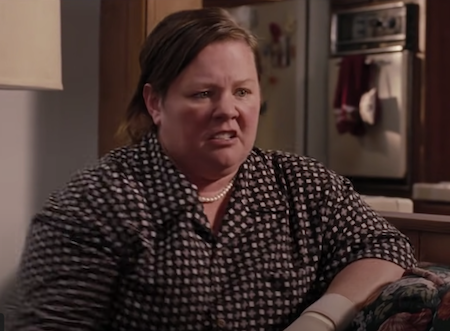
This confident, hilarious, non-nonsense woman needs to give Barbie a pep talk. I did love Gloria (America Ferrera)’s speech, but Megan’s would be one for the ages.
2: Ida (Eve Arden) from Mildred Pierce (1945)
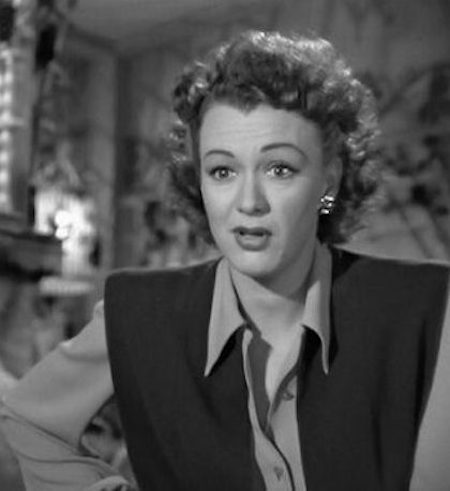
What Megan can do with yelling and pounding, Ida can do with an eyebrow. Ida’s dry, blistering one liners about Ken’s power grab would be epic.
3: Oda Mae Brown (Whoopi Goldberg) from Ghost (1990)
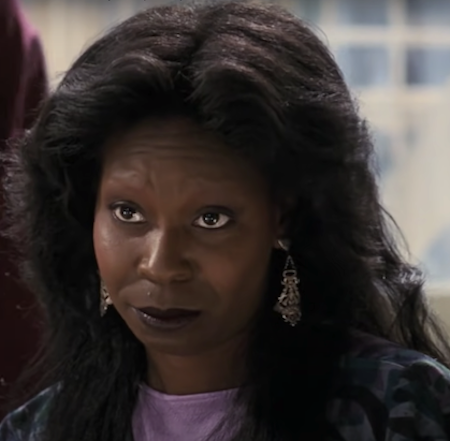
I’ll be honest–this may be just because I want her to say, “Barbie, you in danger, girl,” when the doll puts on fluorescent rollerblading gear.
4: Tira (Mae West) from I’m No Angel (1933)
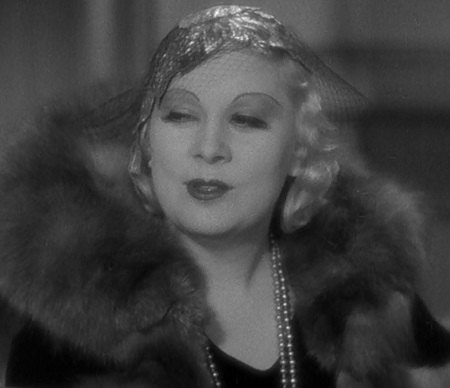
Tira’s running commentary on Ryan Gosling’s abs and what she’d do to his character on the beach would have everyone in the theater howling with laughter. I’d love to hear her tell Barbie to keep relishing that many Kens in her life. And how much I’d anticipate her reaction to the ending!
5 & 6: Stage Door (1937) Roommates Terry (Katharine Hepburn) & Jean (Ginger Rogers)
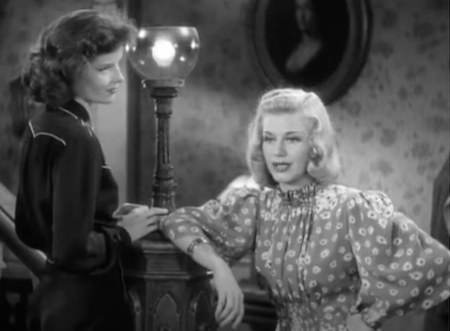
Obviously, I’d want the ENTIRE Footlights Club to accompany me, since there simply is no wittier all-female repartee on film (the famously catty The Women ensemble can’t compare). Don’t believe me? Lucille Ball is in the supporting cast. These sexual-harassment-fighting, badass feminists would be FABULOUS commentators, and I’m so sad I can’t follow their pop culture podcast right now.
7 & 8: Adam (Spencer Tracy) and Amanda (Katharine Hepburn) from Adam’s Rib (1949)
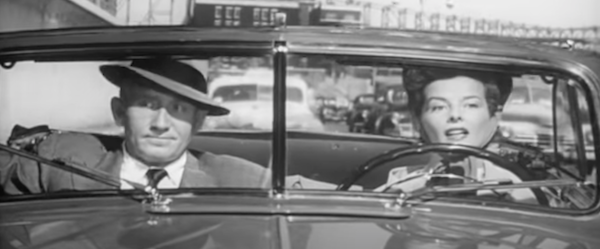
What could be better than to hear a brilliant couple with perfect dialogue critique the work of screenwriting couple Greta Gerwig and Noah Baumbach? And with the way Amanda just slays in arguing women’s rights in the courtroom, I long to hear what she’d say to those fools in the Mattel boardroom.
There you have it. My eight favorite Barbie movie companions. Who would yours be?
The Prowler (1951): a Jealous Husband Film Noir
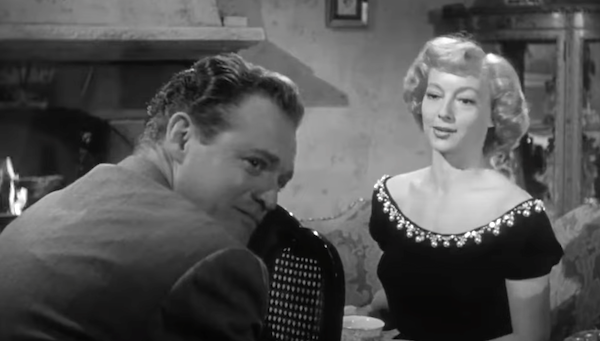
Most film noirs are cautionary as well as bad luck tales. But there’s a particular type that seems to be created by untrusting husbands and wives, the “you’ll be sorry if you cheat” noir. The most memorable for many of us are Fatal Attraction (1987) for the disloyal husband, Unfaithful (2002) for the straying wife. But the genre has a long history. The Prowler (1951) stands out in this list because it stars Van Heflin, whose charisma highlights just how easy the tumble into marital infidelity can be.
Van Heflin isn’t a name that stands out to any but classic movie fans despite his 1942 Oscar win, but his films do, particularly 3:10 to Yuma (1957) and Shane (1953), in which he plays steady husbands who can’t compete with the glamour of flashy gunslingers. In these films you feel the stamped-down passion of a man who has been worn down by hard work and harder luck. I prefer the roles in which Van Heflin plays lighter characters, like the gambler of The Strange Love of Martha Ivers (1946), the adventurer in Green Dolphin Street (1947), or Althos in The Three Musketeers (1948). These roles capture the sexy quicksilver nature and physicality of a man who once left acting to be a sailor.
***some early spoilers ahead***
It’s that impulsiveness that makes Van Heflin so alluring as a cop in The Prowler. He might return to check on the lonely wife (Evelyn Keyes) who calls to report a peeping Tom, or he might not. He might call her back or pretend he doesn’t get her calls. He sets her at ease by sharing the Indiana roots he holds in common with her. But it’s his carefree manner of walking through her house that makes her prefer him to her older, stodgier husband, who–coded as the reference may be in a 50s film–seems to be impotent.
Unfortunately, the wife doesn’t notice the cop checking out her husband’s will in between visits to her bed. And so she doesn’t know for sure when he pretends to be the prowler in order to kill her husband whether it was an accidental killing (as the inquest claims), or not. When she marries the cop, she takes it for granted he’ll be pleased with her too-far-along pregnancy instead of seeing it as the danger it is. But as noir-aware audiences, we wonder, what happens when that bump gets bigger? I had eerie Fargo flashbacks as I watched the cop go about his plans. Will bystanders suffer the fate of those poor drivers in that Coen brother masterpiece? What about this new wife, who is now a liability? Suddenly, the unpredictability that attracted the now-widow looks less like sexiness, and more like the danger warned in the Coens’ own infidelity noir, Blood Simple (1984).
The Prowler plays its potential endings close to the vest, and the movie is bare and streamlined, as a good noir should be. It seems, in fact, like the film could have been written yesterday with a few tweaks. We audiences don’t know what the cop will do, but we are reminded that cheating is a risky game, especially for a woman before her biological clock runs out. So beware of the sexy Van Heflins of the world, men with quick smiles and chips on their shoulder. Beware of the man who acts casual as he rifles through paperwork in your home. Beware–the jealous spouses of the world warn we viewers–and keep him safely outside of your door.
Ray Milland & the Columbo Surge
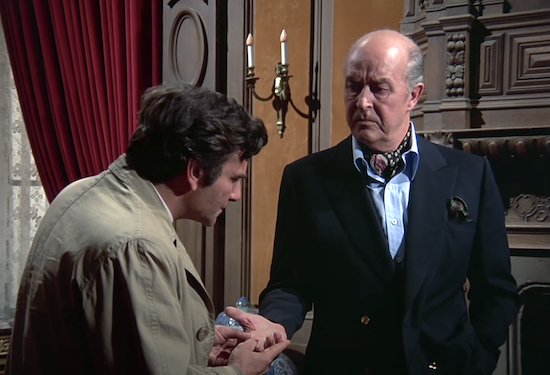
I adore that Columbo is experiencing a renaissance with younger audiences. Gabrielle Sanchez attributes it to youth’s “clamor for more murder mysteries that skewer the rich.” Not hard to believe given the dominance of The White Lotus and Succession.
Columbo’s viewership had already been climbing steadily during quarantine, thanks to its soothing appeal. Then Rian Johnson embraced his own Columbo fandom with the Natasha-Lyonne helmed tribute series, Poker Face, this year, guaranteeing that his many young Knives Out fans would follow his wake back to the short man in the long raincoat the rest of us have been loving for decades. (I knew anyone who created Brick would be a classics fan.)
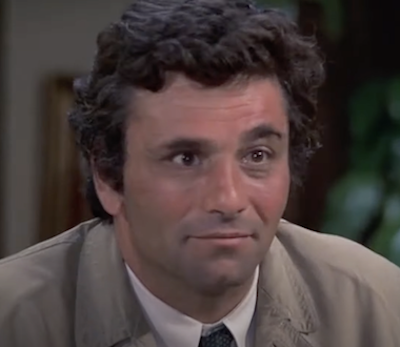
All of this fervor in turn brings new audiences to the classic movie stars we bloggers love, from Janet Leigh to Faye Dunaway to Myrna Loy to Celeste Holm. Even Don frickin Ameche (I’m a big fan of 1939’s Midnight). And of course, this fervor brings us to the suave, compelling Ray Milland, who appeared in two Columbo episodes—both early in the show’s run, when it was at its best.
I’ve often been curious about Milland. “The poor man’s Cary Grant” I read once in reference to him (though it might have been Melvyn Douglas). The dig was especially unfair since Milland was sometimes preferred to Grant: in the casting of Bringing Up Baby, for example. He was chosen over Grant for Dial M for Murder, due to salary or villain-casting worries. But the dig is fair in one sense: Grant was an icon everyone knows still today, and Milland?
“Who is that?” said my mother (echoing every other person I asked).
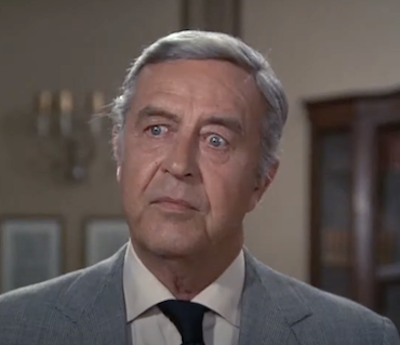
And yet, even those who don’t know Milland will catch a whiff of Grant. Close your eyes when watching a Ray Milland film, and for a minute, you’ll mistake the Welsh actor’s Mid-Atlantic accent for my favorite Bristol-born actor’s. Watch, for a moment, Milland move, and his easy grace and debonair expressions will trick your eyes too—as will his sharp wit and self-amusement.
And his slim build, height, dark hair, and air of confidence and wealth will throw you. As a Matinee and Mustache tumblr poster brilliantly put it, “Ray Milland looks like if Cary Grant and Jimmy Stewart had a son together after the Philadelphia Story.”
No wonder when The Awful Truth was remade as a musical in 1953, Milland was chosen to play Grant’s role.
But the Oscar-winning star of The Lost Weekend deserves to be remembered for more than just a Grant resemblance. I’ve never thought he ought to be appreciated as much for the good, but miserable-to-watch film that won him his greatest honor as for the comedies and dramas to which he leant such a light comic touch or thrilling suspense. I loved him in The Major and the Minor (1942) with Ginger Rogers, despite the issues with that subject matter. I loved him in The Uninvited, where he’s a charming, funny companion to sister Pamela (Ruth Hussey), grounding a gothic tale that otherwise would have gone too far off the rails.
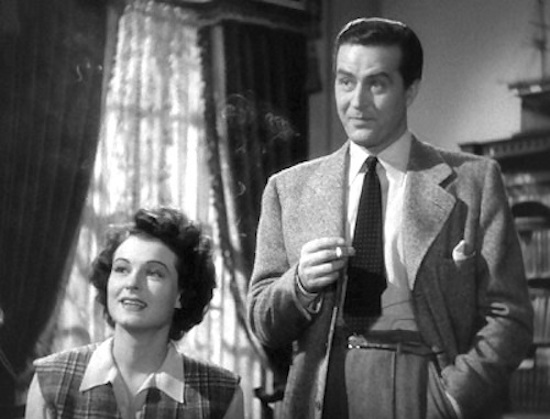
And of course, I love him as the coldblooded plotter in Dial M for Murder. In fact, that film is one of my least favorite Hitchcocks but for his performance. The superiority and cool assurance he displays in that story make him an especially riveting villain. I particularly admire his character’s appraisal of the hitman’s situation, and how coolly he explains to the poor man that he simply has no choice but to kill his wife.
So it fits then, that in his Columbo appearances, Milland tries his hand at two different kinds of roles: in the second episode of season 1, he plays the beloved husband of the victim, displaying the charm and intelligence that made him such a draw to women in his movies.
And in the second episode of season 2, “The Greenhouse Jungle,” he’s a version of his scheming Dial M for Murder villain, killing his nephew after an audacious kidnapping plot.
These episodes are such fun to watch. The first, “Death Lends a Hand,” features Robert Culp as the blackmailing private detective who accidentally kills the cheating wife of an influential newspaper owner, Arthur Kennicutt (Milland), after she refuses to give into his schemes. Columbo is a DELIGHT in this episode, playing his usual, I’m-harmless game in some of my favorite scenes. In an early moment, he not only walks into a closet instead of out a front door, but pretends to be a big believer in palmistry with a straight face. Wonderful. We get hints of Columbo’s rapscallion past. And throughout, Milland plays the grieving widower with a dignity that makes us feel for his loss. His growing appreciation for Columbo is subtly shown. The quick, almost impressionistic shots of the killing and cleanup are cleverly done. And Culp is at his irascible best.
“The Greenhouse Jungle” is a bit lengthy for me, with too many shots of cars driving, but the plot is fun to watch and the humor intense throughout thanks to an ambitious young police officer who thinks he’s outsmarting Columbo. In a wonderful scene, the young officer shows off expensive tech equipment he’s bought himself, and our favorite lieutenant quips that he must be a bachelor. I also enjoyed Columbo’s hilarious ploy of disarming Milland, an orchid aficionado, by asking that he repair his wife’s 90-percent-dead African violet. Milland has a blast playing a supercilious, judgmental, superior snob who thinks he’s come up with a genius plot. He is not as clever as the Dial M for Murder schemer, but thinks he is. Milland approaches, but doesn’t quite veer into, hamminess in the role, which makes him riveting. But my favorite aspect of both episodes is–not shockingly–Columbo’s insight and empathy.
In “Death Lends a Hand,” he shows such understanding for the man who had an affair with Kennicutt’s wife. He is surprisingly blunt with him, admitting his suspicions about the relationship right away, but also assuring him he’s not a suspect (and this time, he means it). The golf pro seems like such a nice guy, and it warms us to see Columbo treat him with so much understanding. The lieutenant is also adorably kind to the villain’s minion, right after fooling him to expose his boss.
In “The Greenhouse Jungle,” the wife of the victim is in an open relationship–which makes Milland’s character despise her and his nephew. But Columbo says he admires her for her honesty about who she is, and we believe him. It’s this lack of judgment and lack of the kind of he-man attitude toward women so familiar in other cop shows (then and now) that make Columbo always feel so modern and fresh and lovable.
And how lovely it is to see Ray Milland, an underrated actor in this day (if not in his), playing on a show that is all about the dangers of underestimating others.
This post is part of the Classic Movie Blog Association (CMBA)’s blogathon, Big Stars on the Small Screen: In Support of National Classic Movie Day! Definitely check out the other entries!
For fantastic Columbo episode breakdowns, go to Columbophile!
The Leo Grande Snub & More Oscar-Related Reasons I’m Pissed Off, Part I
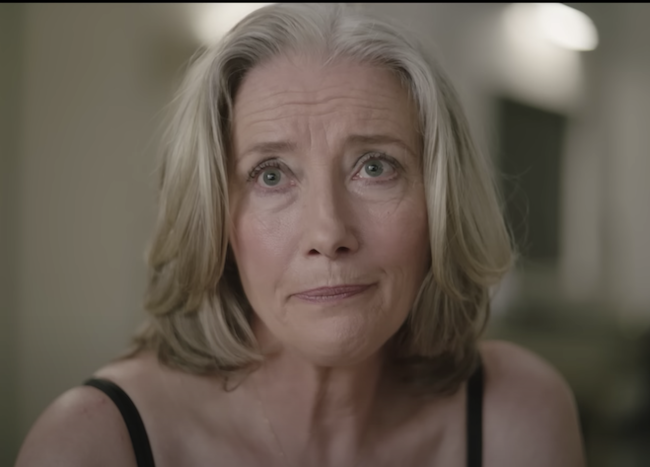
Good Luck to You, Leo Grande. An enjoyable, meaningful film about a woman dealing with sex and her self-worth in middle age. A nuanced story, with a sympathetic portrait of sex workers. It gets nada from the Academy. A subtle, star-making turn by Daryl McCormack–ignored. And Emma Thompson not only snubbed, but not even listed as an Oscar snub. People couldn’t shut up about JLO not getting a nomination for Hustlers, but we’re going to forget that two-time-Oscar winner Emma Thompson was overlooked for one of her finest performances?
Viola Davis and Danielle Deadwyler Get No Nominations, and Ana de Armas Does for Razzie-Nominated Blonde. I read the book Blonde by Joyce Carol Oates, even liked it. I am not sure the director did. That film? Oh no. No. No. No. Was de Armas good in it? For what she had to work with, which was not much. That’s not an Oscar nomination. Look, I’m a Marilyn fan. That woman had some serious chops as a comedienne. But that tired trope of fragile waif Marilyn again, with some gross additions thrown into the mix? That film deserves NOTHING. I am sick.
Tár. It seemsTodd Haynes makes a movie every decade, and with the best of materials and actresses, manages to turn wonderful storylines and potential into snores.
Triangle of Sadness. A fight over a check that should have taken five minutes being stretched to such ludicrous proportions that I forgot what the movie was about. A diarrhea-puke-&-other gross bodily-function scene that takes excruciating amounts of time for NO REASON (and doesn’t make me laugh once). And, of course, the earth-shattering message that power and money corrupt? This is some shit, people. Literal and figurative. NO FEMALE DIRECTORS were chosen so that this gem could make it into the best-directing category.
Top Gun Maverick. I admit it: I didn’t see the thing. I couldn’t bear it after I found out Kelly McGillis wasn’t invited back. I’ll watch this, that Avatar sequel (please), and other action extravaganzas nominated for Oscars once a female blockbuster gets a berth on the list. In the meantime, please everyone, stop bellyaching that crowd pleasers never make it, while nominating male-only fare like Master and Commander and Gladiator. Why is everyone so forgetful? Crowd pleasers OFTEN make it, and even win. What the hell was Braveheart? A subtle indie film? What about Jaws? The Greatest Show on Earth (1952)? I mean, NO ONE saw those, right?
And I’m just getting started. Rant, Part I over. Stay tuned for Part II….
Who Is the Biggest Charmer?
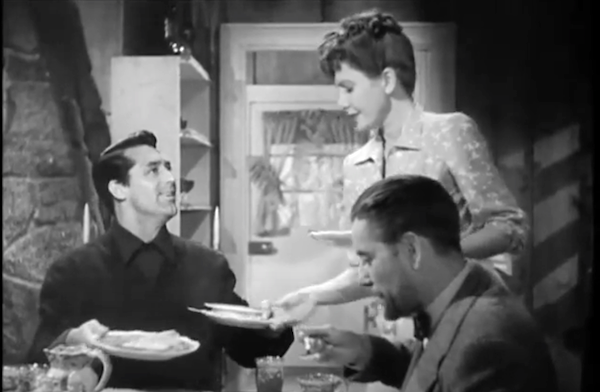
The Talk of the Town (1942) is a joyous experience. It features a romantic triangle between three actors who are absurdly charming: Jean Arthur, Cary Grant, and Ronald Colman. It’s a bit of an odd tale, but frankly, with these three people in the mix, who cares about plot?
You can’t watch Cary Grant’s smirking, musing, or flirting….
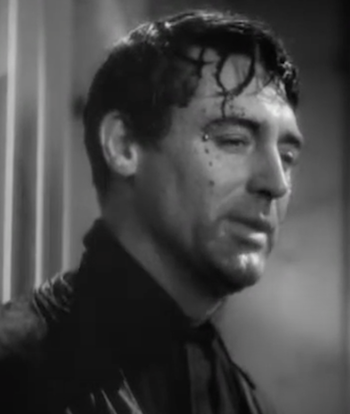
Hear Jean Arthur’s lovely tweety voice…
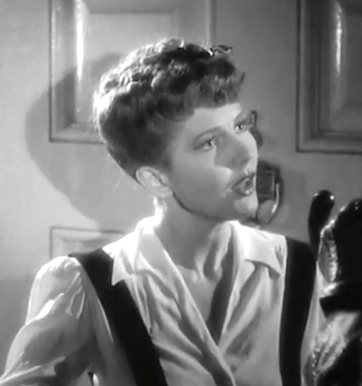
Or witness the sweetness of Colman’s subtle smile….
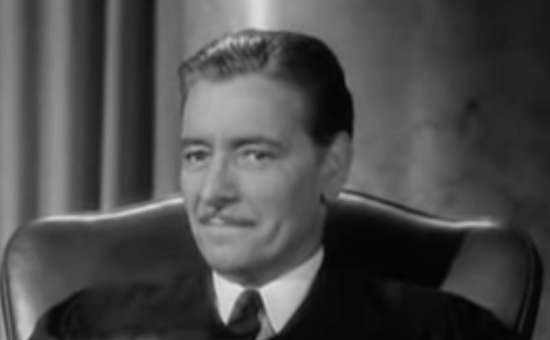
without giving into them, can you?
The only question is which of the three is the MOST charming.
Certain actors carry a patina of their roles with them. To me, Julia Roberts, Tom Hanks, Al Pacino, Robert De Niro, and Denzel Washington are all like this. Try to watch Tom Hanks without the echoing sweetness of Josh (Big) and his other early comedies winning you over; I can’t make it through half a minute of any of his movies without already loving the guy.
But it’s not often that THREE actors this charming share the screen, as they do in The Talk of the Town.
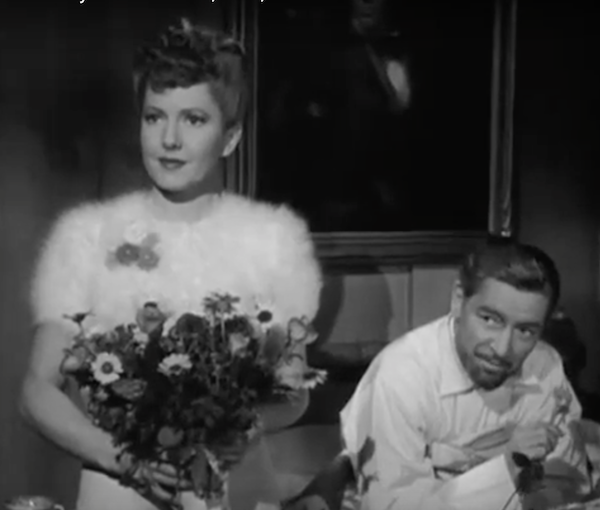
The story is a peculiar mishmash. Jean Arthur’s Nora, a teacher, is renting her house to a renowned legal scholar, Professor Michael Lightcap (Colman). Her old school chum, Leopold, is on the run from the law, accused of starting a fire in a mill that killed his foreman. He hides in her home right as Lightcap arrives and pretends to be her gardener to fool the new resident.
Lightcap may be the only person who can save Leopold’s life. The mill’s owner is egging on a mob to kill Leopold for his alleged crime. The fugitive, annoyed by Lightcap’s cold legal logic, moves Lightcap with his passion and firebrandy ways (couldn’t resist), which are what made the mill owner hate him to begin with. Nora finagles a job as a secretary to Lightcap to protect Leopold from being discovered by the mob–or by Lightcap.
A triangle really is the right word, as Nora is impressed by Lightcap’s prestige, intelligence, and ethics, and torn between these new feelings and her old affection for Leopold.
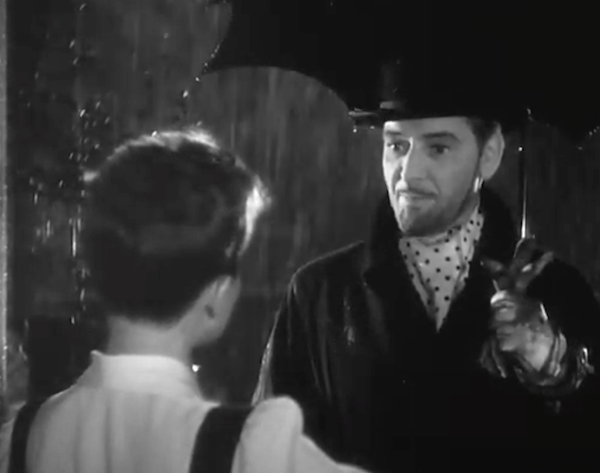
Yet it would be a mistake to leave Leopold and Lightcap out of the mix: the film is as much about intellectual as romantic affection. Whether Lightcap is most drawn to Leopold or Nora is a question that never gets answered.
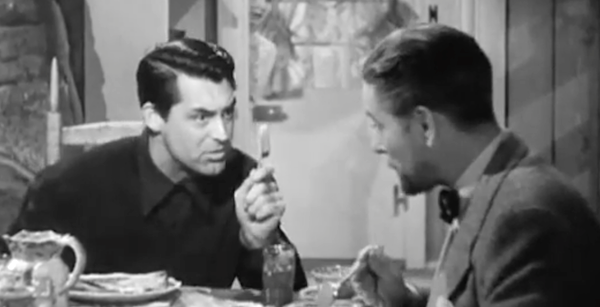
And who can blame him? This is a charm off, my friends, and in every corner of this Isosceles is an actor—and by extension, character–you can’t help watching. Let’s dig a little deeper:
Jean Arthur
Whether she’s wisecracking as Saunders (Mr. Smith Goes to Washington), flirting without realizing it (The More, the Merrier), baffled (Easy Living), or earnest (Shane), Jean Arthur is adorable. I love seeing her in oversized PJs.
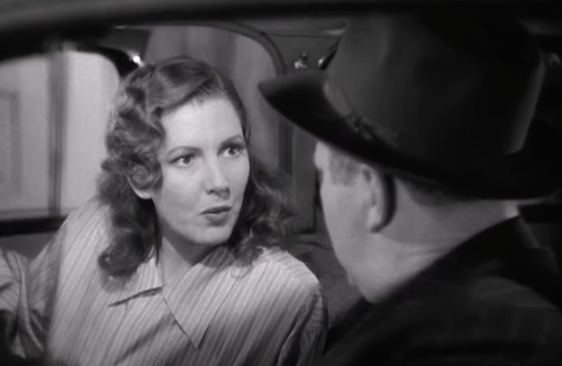
The look somehow captures her appeal–the way people underestimate her until that feisty, birdlike voice and the frustration she evokes so well (she should be annoying but somehow never is) draw you in and win you over.
Ronald Colman
I fell for Ronald Colman in Random Harvest, and woe betide the woman who ever watches that film: his “forgotten man” will haunt you. With a voice nearly as memorable as Arthur’s, the broken veteran in Random Harvest moves seamlessly from his shaken condition to the debonair man of consequence. He is equally convincing in both versions of himself. His gruffness in The Talk of the Town‘s start, therefore, never fools me for a second. This, my friends, is a sweetheart, make no mistake–and thus he proves to be. These two films came out in the same year, so perhaps others didn’t have this early love affair with him. But watch him in anything, and you fall for the man.
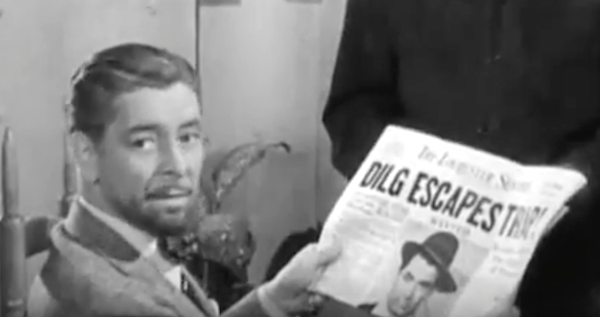
Cary Grant
Cary Grant, of course, is the most obvious charmer–playing, as he often admitted himself, the part of Cary Grant his whole life. He is never fully convincing as the local troublemaker driven by his ideals–until he questions his own judgment due to his admiration for Lightcap.
Cary Grant often seems to be in reflective mode, and his torn feelings about Lightcap play over that gorgeous face. But then, we are on his side as soon as we recognize that face. This is the slightly disreputable version of the actor you can’t help but adore, the rabble rouser with a naughty streak, with a pinch of The Awful Truth and Topper. You’re never convinced this is the Cary Grant of Suspicion, though he is accused of murder. Like with Arthur, you can’t ever count him out, even when he’s romantically (and ethically) paired against a potential Supreme Court justice, Lightcap.
So who do YOU think the winner of this charm-off would be, however it may end in the film? I leave it to you to decide.

